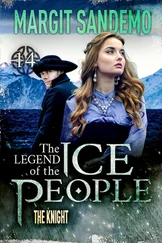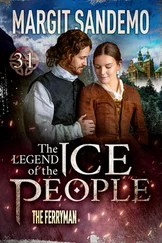Meanwhile, Lawrence had walked over and was now standing in front of Matty and Henry. Lawrence said several things in a language that Matty didn’t know and that Henry didn’t seem to know, either: he stood there, arms crossed, frowning. “So you’re from Sweden!” Lawrence said, in English. “Or as you say, Sverige! I’ll never forget the fall I spent in Stavsnä!. .” And then Lawrence said several more typically Lawrence things. None of which appeared to have any effect on Henry: he was still frowning and crossing his arms. Finally, Lawrence seemed to give up, and said simply: “I’m Lawrence Klock. I teach eleventh- and twelfth-grade history. Welcome to Broomeville.” Introducing himself! Like a real person! This new guidance counselor really was incredible. I know how, Matty thought. I know how everything is going to be just fine. And then he pulled down his mask, strode back toward the snow-covered field, and ordered everyone to play ball.
Matty had ended up giving Henry a tour. He couldn’t help himself. After the game (the students won; the students won every year; every year, the faculty insisted that they wanted the students to win, that it was important that the students win, that it was important for the students to feel good about themselves; every year, the faculty ended up doing everything they could to win and ended up losing anyway), all Matty had intended to do was walk Henry back to the Lumber Lodge and tell him what to expect tomorrow at school and maybe ask him whether he knew where Locs was, whether she was in Broomeville or somewhere else. But here he was, giving a tour of Broomeville. This was another burden for people from small towns: they couldn’t stop themselves from giving an out-of-towner a tour and then at the end of the tour saying, I know it’s not much, and then daring the out-of-towner to agree.
“And this was where Dietrik Broome lived,” Matty was saying. They were standing in front of the chalet. The snow was still falling, falling. There was at least a foot of it already on the ground and it was piled high on the roof and the gables, making the house look even more Swiss than usual. Although Broome himself had emigrated from Holland. “He emigrated from Holland, in 1789,” Matty was saying. “No one lives in the house anymore, of course. It’s more of a museum than a house.”
“May we go in?” Henry asked.
“It’s open only by appointment.” Matty hoped Henry wouldn’t ask with whom he could make that appointment. Because honestly, Matty had no idea.
But Henry didn’t ask anything. They kept walking, past the gazebo and monument, which memorialized Broomeville’s war dead, and then they were in front of the Lumber Lodge, which was alive with drunk people. Matty could hear them from where he was standing, even though the bar windows were closed. Ellen had left the game early; she was inside now, tending bar. “Snowstorms make people want to drink,” Ellen liked to say. “As does extreme heat. Not to mention a light drizzle.”
“So that’s the tour,” Matty said. “I know it’s not much. .”
“You haven’t yet told me what a guidance counselor does,” Henry said. He sounded tired. Which made sense, since he’d traveled who knew how far to get there.
“No one really knows,” Matty said. “Don’t worry. You’ll do just fine.”
“Just fine,” Henry repeated. And then: “I think I’ll go to bed now.”
“Fair enough,” Matty said. “See you at school tomorrow.” Then Henry turned and walked toward the Lodge. Matty watched him. The door opened. Matty heard a boozy roar. Then the door closed, and the roar disappeared. Matty looked through the bar windows. His teachers and staff were in there. They always went to the Lumber Lodge after the game. Matty really belonged in there, too. He always made a speech after the game, thanked his troops, bought them drinks. But tonight he ignored that tradition. Matty started to walk. This was one of the ways that he was different from Ellen. Locs, too. Both of them liked to drive, anywhere, always. But Matty liked to walk. He told people it helped him think. It also had the virtue of helping him postpone having to do the thing he was thinking about.
It was after eight o’clock, and Locs didn’t know what to do. Matthew might be down at the Lumber Lodge. But she couldn’t go into that terrible place, because his wife might be there. He might be at his house or at the baseball game (The first Wednesday in October! she remembered), but she couldn’t go to those places, either, for the same reason. And Matthew wasn’t in his office at school. She knew that because she’d checked. He wasn’t there. He was not anywhere. She didn’t want to risk using her cell phone to call his, because if she used her cell phone, then she could be tracked by her cell phone, and right now she knew the people who might be trying to track her. London, she thought. Crystal. Doc. Capo . Jesus Christ. His ridiculous nickname and his ridiculous clocks to remind him of the whereabouts of the rest of his ridiculous people. But just because they were ridiculous did not mean she wanted them to know where she was. But what exactly do I want? she wondered. What am I doing here? But that was a rhetorical question. She was here because she was lonely; she was here because she loved Matthew. She loved Matthew so much that she couldn’t stop thinking about him, even after he’d dumped her, even after she’d left Broomeville and joined the CIA just so she could put several thousand miles and several large bodies of water between them. She loved Matthew so much that she’d brought that cartoonist thousands of miles under the ludicrous pretense that this was the best place for him to stay hidden, forever. She loved Matthew so much that she’d convinced herself that Capo would somehow not discover that she’d brought Henrik to Broomeville, even though Capo lived in that same fucking town . She loved Matthew so much that she’d convinced herself that if Capo did discover that she’d brought Henrik to Broomeville, then Capo would see the enormity of her love for Matthew and would be so moved by that love that he would forgive her for bringing the person she was supposed to be guarding to Broomeville, without his permission, and not kill her, as he had done to other agents who had gone rogue and done things without his permission. She loved Matthew so much that she’d convinced herself that after Capo had forgiven her for going rogue, he and she and Crystal and Doc and London would look after Henrik together, like a family or something, while she simultaneously started a family of her own with Matthew, even though Matthew already had a family and even though Matthew had already shown a pretty clear resistance to leaving his family for Locs, even though he supposedly loved her so much. “Fuck, fuck,” she said to her rental car, which was a dark blue Chevy Cruze or something ridiculous like that. Everything about the car was slightly wrong, in the way of rental cars. The steering wheel, for instance, was too low. It felt like it was practically in her lap. And she couldn’t find the knob or lever to raise the thing, either. It was an awful car in which to drive aimlessly around the town you hated, hoping to find the man you’d come so far to see.
And it was snowing, too, because of course it was, because it always snowed. It was pretty. But there was always something that ruined it. For instance, the insolence of people who, during or after snowstorms, walk in the road instead of on the sidewalk or the shoulder. There was someone in front of her doing just that. He was practically in the middle of the street, too. And it wasn’t even a street; it was Route 356, where you could and wanted to drive fifty-five miles per hour. Yet this bozo was walking pretty much down the center of the road, not anywhere near the shoulder. There was snow in both places: it was calf deep on the shoulder, while it was only shoe high on the road itself. But there was snow, and the cars had to drive on it, and cars were known to sometimes skid on snow, were they not? Was this not common fucking knowledge? Had this guy really weighed his options? Had he examined the two possibilities — getting his shoes and pants a little snowy, a little wet, while walking in relative safety on the side of the road, or keeping his feet somewhat dry while being struck by two thousand pounds of hurtling steel — and chosen the latter? He apparently had. And she knew exactly what this guy was thinking: Oh, I hate it when my pants get all snowy, so I’ll take my chances with the road, the cars will move over, they always move over, they have always moved over. God, she hated these people. One of these days, maybe this day, she really would hit someone, and when that happened, she would get out of her car and stand over one of these arrogant bozos who had finally gotten his due, and before she would be able to get a word out, he would say, if he wasn’t already dead, I can’t believe you actually hit me.
Читать дальше












